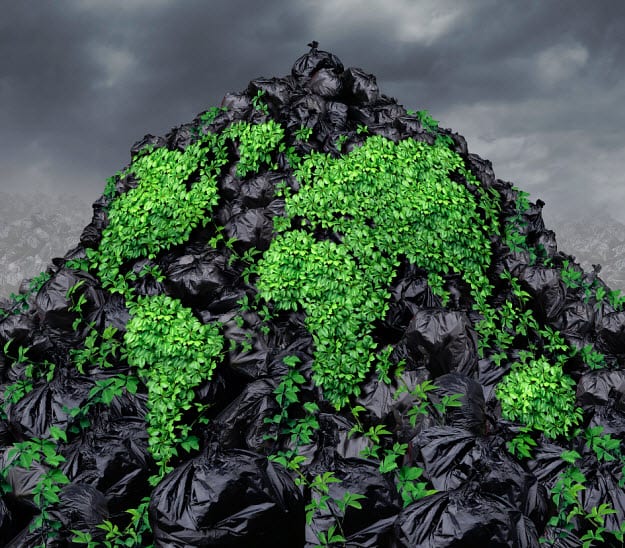New waste to energy technology could convert hard-to-treat waste into power
July 31, 2015A new system could convert carbon from waste that would otherwise end up in landfills.
A new Pyrofab module developed by the European Bioenergy Research Institute (EBRI) at Aston University in Birmingham, UK, is a type of waste to energy technology that has been designed to generate energy from waste that is typically hard to treat and usually ends up in landfills, such as agricultural waste (ex. pig manure), domestic waste, industrial waste, and even baby wipes.
A prototype of the Pyrofab module is currently being tested.
Designed and built at Aston’s EBRI, the Pyrofab module has been made small enough to be transportable. It has been designed to transform carbon from a large range of locally available sources of biomass and waste. If successful, it could prevent a lot of waste from being sent to landfills.
The Pyrofab module consists of two parts. The first uses EBRI’s Pyrofomer technology, a type of conversion technology that uses intermediate pyrolysis to convert the feedstock into carbon-neutral oil and gas fuel, as well as biochar, which has commercial value as a soil improver. The system features a twin screw, forcing the material through the sealed environment at high temperatures of about 500 degrees Celsius (932 degrees Faherenheit). The second part of the module is a monitoring lab and results analysis facility, reported The Chemical Engineer.
The new waste to energy technology could improve rural economies, create jobs, and reduce waste treatment costs.
 Bioenergy demand is anticipated to grow by nearly 50% from 2012 to 2040. Once fully developed, the EBRI researchers say that the Pyrofab will open up the bioenergy markets to local authorities and businesses. The Pyrofab technology can work with current energy generation tech. It can also lower the environmental impact of fuel transportation and lower reliance on imports because it is adaptable to local sources of carbon. It has the potential to stimulate rural economies, decrease the cost of waste treatment, and create jobs.
Bioenergy demand is anticipated to grow by nearly 50% from 2012 to 2040. Once fully developed, the EBRI researchers say that the Pyrofab will open up the bioenergy markets to local authorities and businesses. The Pyrofab technology can work with current energy generation tech. It can also lower the environmental impact of fuel transportation and lower reliance on imports because it is adaptable to local sources of carbon. It has the potential to stimulate rural economies, decrease the cost of waste treatment, and create jobs.
The director of EBRI, Tony Bridgwater, said that “The Pyrofab unlocks the potential of waste, producing sustainable carbon-neutral bioenergy and biofuels. This has the potential to change a significant liability for businesses and local authorities across North West Europe into a home-grown resource, to reduce waste management costs and generate new revenue streams through the derived products.”
Bridgwater said that although when most people think about energy security, baby wipes and food waste isn’t what first comes to mind, converting this waste to energy could play a significant role in delivering Europe’s environmental targets and boost energy security.

 With over 15 years of reporting hydrogen news, we are your premier source for the latest updates and insights in hydrogen and renewable energy.
With over 15 years of reporting hydrogen news, we are your premier source for the latest updates and insights in hydrogen and renewable energy.